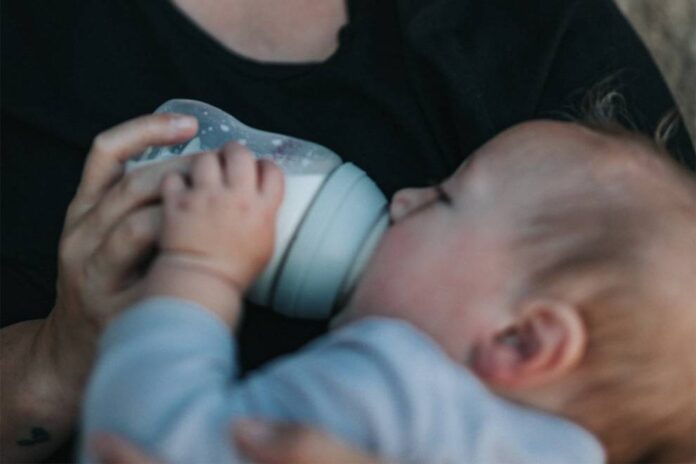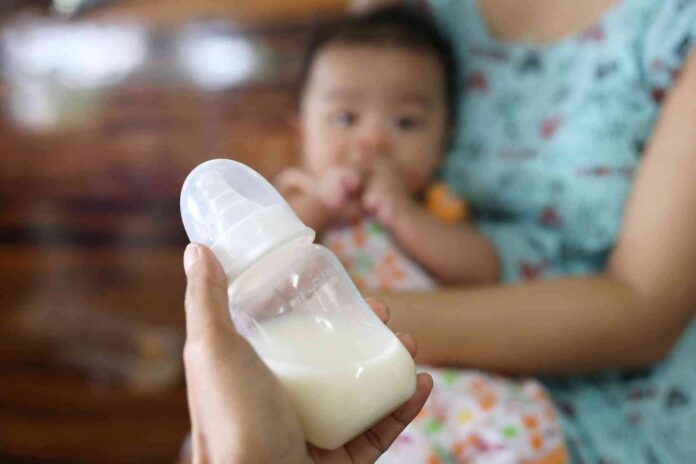The popularity of natural and organic products has increased dramatically in the last decade as more and more consumers recognize their health benefits.
Modern parents are increasingly attentive to baby food labeled “Organic” and “Bio.” Skeptics tend to say that such a label is only a marketing ploy, but this is not the case. In order to get organic certification for baby formula, a manufacturer is required to pass a number of inspections. In addition, the strictest requirements are imposed on such products. All the ingredients for baby formula should be grown in specially designated areas.
How do you know if a product is really Organic?

Many people think that organic food is food without chemicals, but everything is a little more complicated. The production principles of such products are based not only on the absence of harmful ingredients in the composition but also on the quality of raw materials themselves and nature-friendly culture.
In fact, a product is considered natural if it contains at least one natural ingredient. That is why a natural product and an organic product are two completely different things.
Organic baby food consists exclusively of natural raw materials. Such baby formula does not contain any chemical components, so that it will be absolutely safe, and parents can safely choose it for their baby.
The state of the manufacturer carries out control over organic food. In addition, companies also independently verify the quality of products in their laboratories. When a product has passed all stages of control, it shows the mark “ORGANIC.”

Let’s highlight the distinctive features of products labeled “Organic”:
- For the production of such infant formula, milk gets from cows and goats grown far from industrial zones and cities.
- It is strictly forbidden to use genetically modified fodder. The animals are fed exclusively organic food, to which there are also high requirements. In addition, it is generally accepted that animals must live in a stress-free environment. Only in these cases, dairy products can be considered organic.
- Weed control of pastures is done exclusively by ecological means, without the use of pesticides and other chemicals. The same applies to land where animals graze.
- Therefore, at least three years must pass since any chemicals were added to the soil.
The product must consist of at least 95% organic ingredients to be labeled “Organic.” - The organic formula contains no flavorings, dyes, emulsifiers, stabilizers, preservatives, and other additives of artificial origin. The use of antibiotics and other chemicals to improve the quality of the finished product is contraindicated.
A food product that has successfully passed the entire quality control cycle, confirmed by the certification authorities, receives the appropriate certificate. A special mark “Organic” is put on its packaging: it distinguishes it from other products.
Organic baby products have better taste and higher nutritional value: on average, they contain more vitamins, minerals, and biologically active substances than Non-Organic products made by conventional technologies.
Why is it essential for Baby Food to be Organic?

The requirements for raw materials that are used for baby’s organic food are much higher than those used for adult food. Growing organic products suitable for baby formula is not as difficult as maintaining the same high quality for the next harvest. Therefore, producers should conduct a thorough examination of each batch of raw materials.
Balanced and healthy food will ensure your baby’s growth and development, good health and mood, as well as the formation of proper eating habits. An infant is susceptible to new foods, and the risk of allergies is relatively high. Organic foods contain 20-30% more nutrients, reduce the risk of allergies, and boost your baby’s immune system, thanks to their high vitamin content.
The benefits of organic food also lie in the way it is produced. Organic farming helps to conserve the environment and provide future generations with a healthy and comfortable life. The intelligent use of resources, the care of the earth, and the restoration of ecosystems are necessary to preserve nature and create favorable conditions in which our children can grow up healthy and happy.
Reliable Organic Baby Food Brand

Organic baby food is produced according to approved standards, which provide the use of only organic raw materials grown without the addition of pesticides, synthetic fertilizers, and growth regulators. It does not contain genetically modified organisms (GMO), chemically synthesized preservatives, dyes, flavors, stabilizers, and thickeners.
The pioneer in the manufacture of such products for babies, HiPP, for over 60 years, united farmers who produce organic baby food of the highest quality while taking care of natural resources. HiPP Formula is the leader in baby food production in Germany and Austria, and No. 1 in organic food production, according to a study by Euromonitor International.
In addition to selected ingredients, organic products for babies whose bodies are particularly in need of safe nutrition require constant monitoring. The signature blue HiPP BIO label confirms that each formula box’s contents undergo up to 260 checks in the quality assurance system, including from independent research institutes.
The company’s experts work closely with farmers at every stage, from soil selection to the supply of raw materials. Only when laboratory tests show that the product meets all requirements and does not contain any undesirable substances is it allowed to be used. As a result, HiPP quality standards exceed EU-BIO legislation: the BIO label ensures that HIPP Formula is entirely environmentally friendly and free from harmful ingredients.
You can check organicsbestshop.com for more information about this.
Scientific advances showed that food quality could be improved artificially, and the question of naturalness was not an issue at all. Flavorings, thickeners, and other substances began to be added to food products to help sell the beautiful appearance of the product. Fortunately, consumers are now more conscious of their food choices, especially including baby food.
A growing baby must receive quality nutrition because this is what determines its development. Organic baby products contain the maximum amount of nutrients, vitamins, and minerals necessary for the baby’s proper growth. Be careful when choosing food for your baby, and do not forget about the quality certificates.






